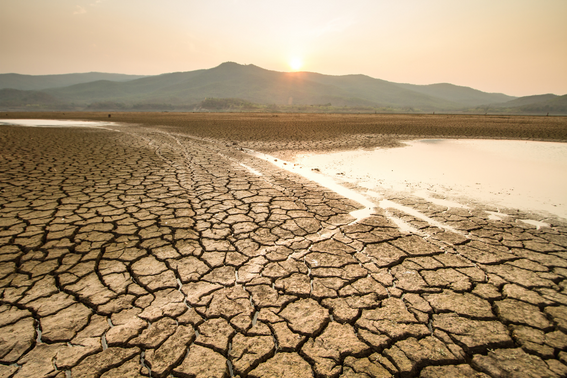
02 Sep. MEP Manuela Ripa (ÖDP) calls for a coherent soil protection strategy
Ripa: „Climate change is putting additional pressure on our soils“
(Brussels/02.09.2022) This week’s report by the German Weather Service that the summer of 2022 in Germany was the sixth driest since the introduction of weather records has highlighted the dramatically poor state of our soils, according to MEP Manuela Ripa of the Ecological Democratic Party (ÖDP) . „The increasing drought threatens the health of the soils and thus the stability of the cultivation of food. This is a result of the decreasing rainfall in the summer months and the increasing heat that reduce the productivity of the plants. This puts the entire ecosystem under stress, which also has a negative impact on the microorganisms in the soil that are supposed to protect the plants from diseases and pests. This creates a fatal vicious circle”.
Nevertheless, the drought to which soils are subjected is just one of the challenges to soil health. 70 percent of soils in the EU are in poor condition. The main reason is the intensive agricultural use of our farmland. The high amounts of synthetic fertilizers and pesticides destroy the underground plant biomass. As reported by the „Naturschutzbund Deutschland“, pesticide residues were detected in more than 80 percent of the examined soils in the EU, while in almost 60 percent of soils, even more than one of these poisonous substances were found. The use of heavy agricultural equipment compresses the soil and is fatal for microorganisms, which are essential for soil health. Manuela Ripa emphasizes, „Soils are a limited and finite resource. Healthy soils are a basic requirement for our food supply and the foundation of our ecosystems. The fact that we have paid too little attention to soil health so far is also one of the main reasons for the massive decline in biodiversity. But if we are serious about the agreed goals of the European Green Deal, we need to invest massively in restoring healthy soils.“
One goal is also more sustainable land use. Unfortunately, this principle is still often violated in Germany, as the ÖDP politician points out: „During the construction of Tesla’s Gigafactory in Grünheide in Brandenburg, 200 hectares of pine forest were cleared. This area, which was of great importance for the formation of groundwater in the region, is now permanently sealed by an industrial settlement. Moreover, in Überherrn in the region of Saarland, the battery manufacturer SVOLT is planning to build a factory on the Linslerfeld, which would destroy a large area of farmland – in the immediate vicinity of a nature reservation area. In addition, this was allowed despite the fact that there are enough former brownfield sites available in Saarland. Having in mind these events, I call on the EU Commission to make it mandatory in the drafting of the Soil Health Law that brownfield sites are used and natural areas are spared in the case of new industrial settlements,“ concludes Manuela Ripa.

